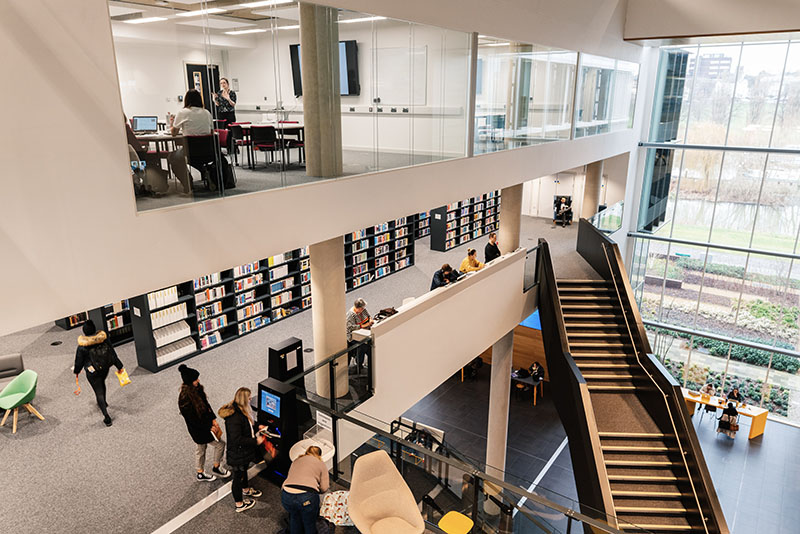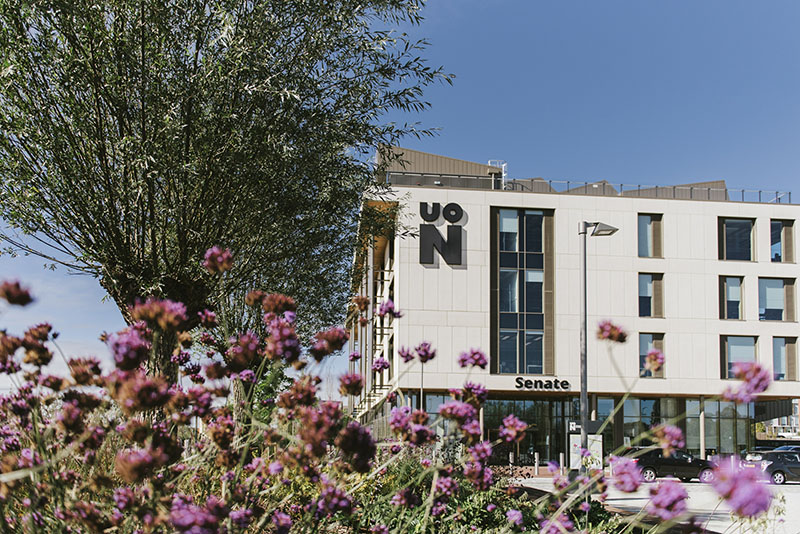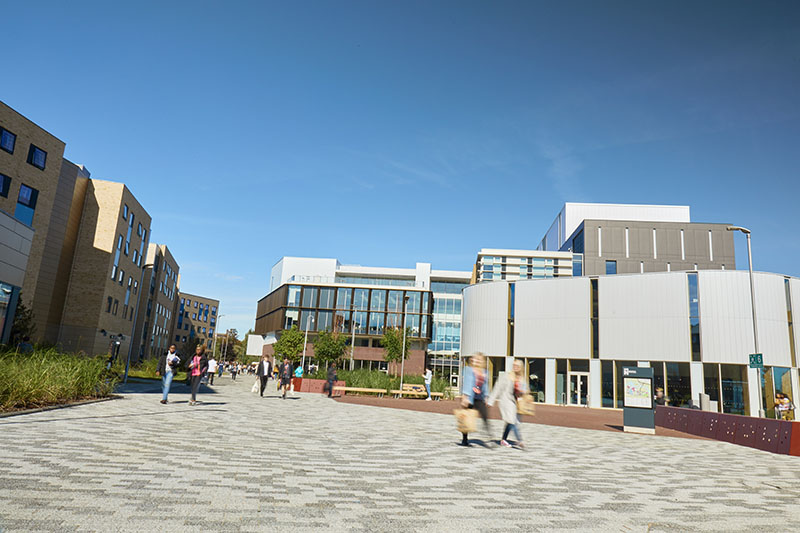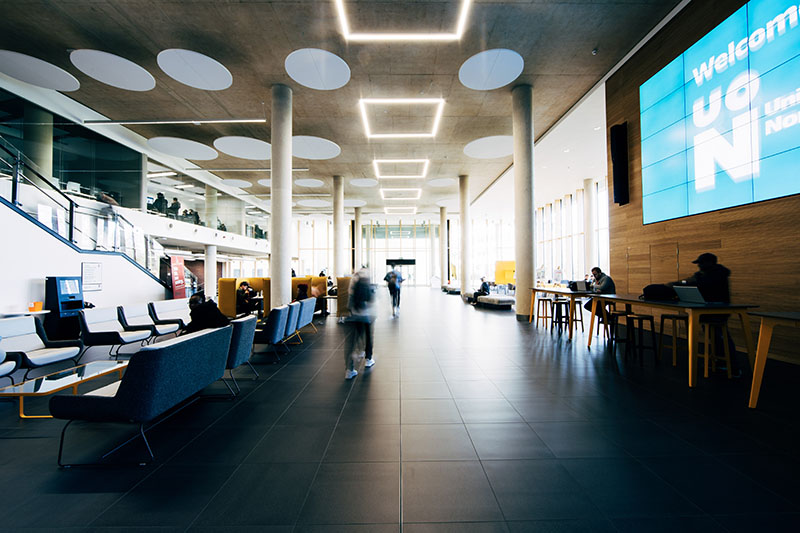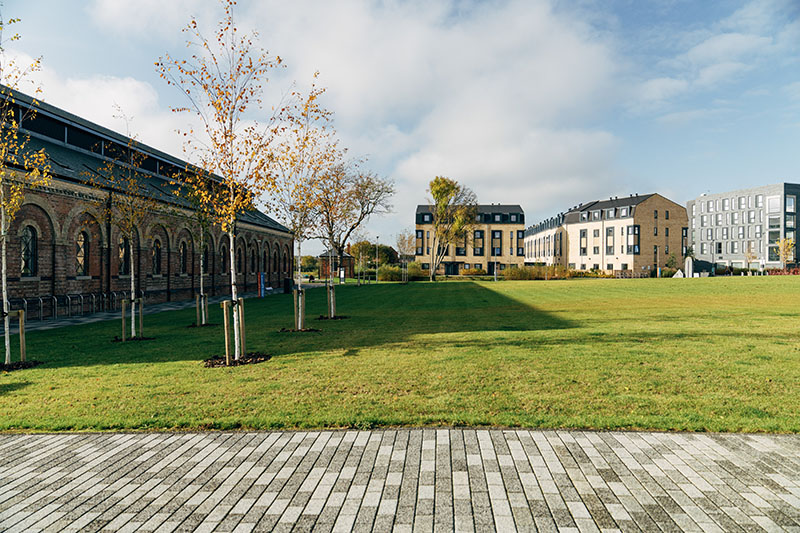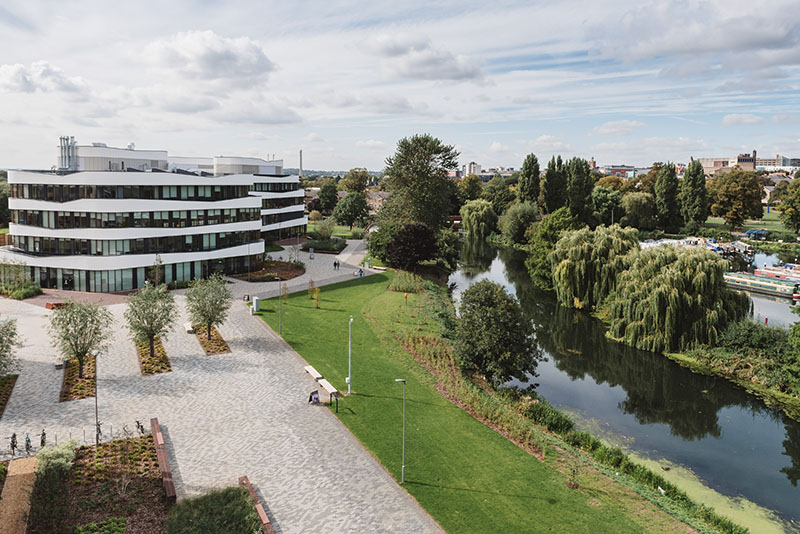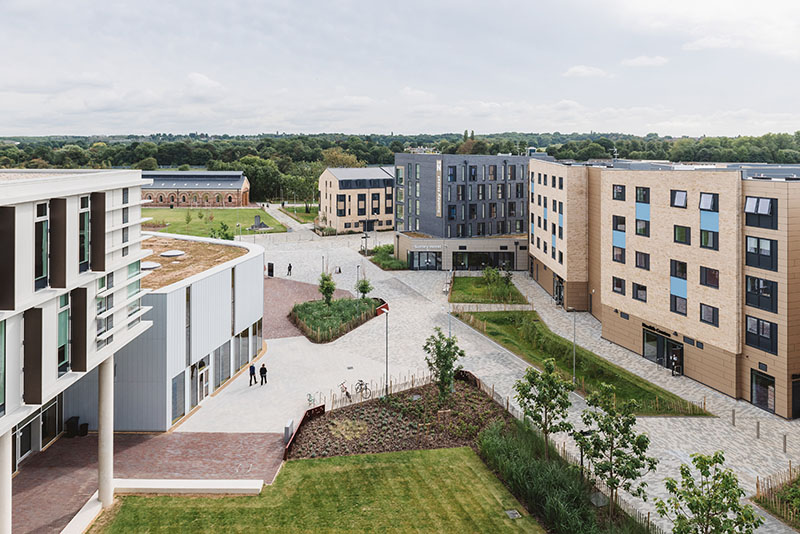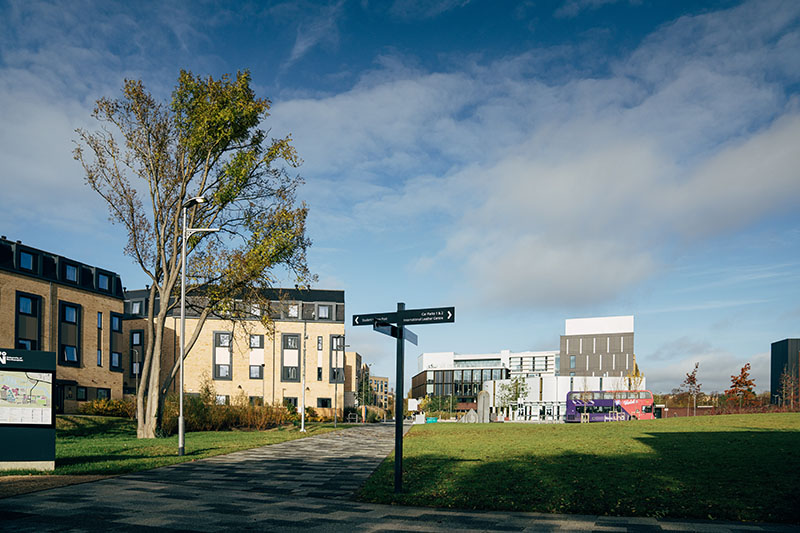
Ferdinando Salamino
Senior Lecturer in Psychology (Mental Health)
Faculty of Health, Education and Society
DiscoverLevel
Master'sPG
MScDuration
2 years part time
Starting
September
Fees UK 24/25
Year 1: £4,140 (90 Credits)
Year 2: £4,140* (90 Credits)
Location
For questions regarding study and admissions please contact us:
The University of Northampton’s Counselling Children and Young People MSc degree is a multidisciplinary course that aims to promote an advanced level of knowledge and understanding that underpins practice in the area of counselling with children, young people and their families.
This postgraduate children counselling course supports you in developing your skills and theoretical knowledge of counselling with children, young people and their families. If you have a particular interest in counselling work with children, then this children’s counselling course is designed with you in mind, allowing you to develop the skills and knowledge needed to pursue a career in counselling.
Updated 16/07/2024
This children counselling masters degree has been designed to contribute towards achieving the following United Nations Sustainable Development Goal: SDG3 Good Health and Wellbeing.
This Masters in Children Counselling course provides you with opportunities for you to enhance your employability and skills are structured into the course to allow you to develop your self-awareness, reflect upon your practice and to benefit from the supervisory relationship. Our CAMH conference (see highlight video below) is an excellent example of the extra opportunities that are available as part of the course.
Our experienced counselling children course team includes specific expertise in CBT, systemic family therapy, Creative therapies, Play therapy and Gestalt approaches. Our teaching staff are able to teach you an integrated approach to counselling with children and young people, imparting their experience from their personal practice.
The child counselling course is led by specialists in the field of counselling with a variety of specialisms and backgrounds. Throughout your study, you will also be supported by practitioners from similar professions (e.g. psychology, social work, nursing, psychiatric nursing, law and psychiatry).
You will study alongside practitioners from health, social or voluntary services who work with children and young people, as well as graduates of psychology and other social and behavioural sciences, allowing you to learn from each other’s experiences as well as course materials.
You have the option to graduate with a Postgraduate Diploma in Counselling with Children and Young People or you can complete all of the modules needed to be awarded an MSc in Counselling Children and Young People.
To count towards a professional body registration, such as with BACP, you will need to undertake a supervised placement practice of a minimum of 100 hours as well as a minimum 40 hours of personal therapy with an approved and BACP or UKCP accredited counsellor or therapist. A student membership of the British Association for Counselling and Psychotherapy (BACP), a professional indemnity insurance and a Disclosure and Barring Service (DBS) check are also mandatory for this course.
Please note the modules shown here relate to the academic year 24/25. The modules relating to the academic year 25/26 will be available from June 2025.
The children and young people counselling MSc promotes an advanced theoretical understanding of Counselling with Children and Young People, integrating opportunities to develop your practical and professional counselling skills.
The child counselling course equips you with a working knowledge of child development, psychological difficulties in children and young people in their contexts and counselling based skills for working with them and their carers within an an eco-systemic perspective integrating Systemic Family Therapy, CBT, and Creative therapies.
Opportunities for you to enhance your employability and skills are structured into the course to allow you to develop your self-awareness, reflect upon your practice and to benefit from the supervisory relationship. Our CAMH conference (see highlight video below) is an excellent example of the extra opportunities that are available as part of the course.
Our experienced course team includes specific expertise in CBT, systemic family therapy, Creative therapies, Play therapy and Gestalt approaches. Our teaching staff are able to teach you an integrated approach to counselling with children and young people, imparting their experience from their personal practice.
You will need to hold a first or second class bachelors’ degree in order to be eligible to apply for this children and young people counselling course. Voluntary or professional experience of work with children and young people is desirable, but not essential.
Applicants are advised to mention any relevant experience related to the counselling children degree programme within the last 5 years with their personal statement.
Applicants are required to provide a reference with their application.
All International and EU students applying for a course with us must meet the following minimum English language requirements:
For information regarding English language requirements at the University, please see our IELTS page.
The closing date for applications is 16 of August. Applications made after this date may be considered for the next available intake.
All offers of a place on the programme are subject to:
For information on how to apply to study with us, please see our How to Apply page.
For information on how to apply to study with us as an international student, please see our How to Apply for International Study page.
Fees quoted for this counselling children and young people degree relate to study in the Academic Year 24/25 only and may be subject to inflationary increases in future years.
*Fee may be subject to an inflationary increase in 25/26.
Fees quoted for this counselling children and young people degree relate to study in the Academic Year 23/24 only and may be subject to inflationary increases in future years.
*Fee may be subject to an inflationary increase in 24/25.
All these costs are communicated during the admission interviews.
For information on the scholarships available to you, please see our scholarships page.
For more information about possible funding options, please visit our Fees and Funding pages.
You will ordinarily be required to attend classes for 1-2 days per week (once per week in Year 1 and 2 days per week in year 2, when the research methods and dissertation modules run). A typical teaching day runs from 9am to 5pm. Depending on which group you are allocated to, the core classes will be taught either on Wednesdays or Thursdays. In the second year, you will need to attend research methods and dissertation classes on Wednesdays and Thursdays.
There are two intensive weeks (Tue-Wed-Thu) in year one, the first of which being held as an induction week at the start of the academic year, whilst the second is a “putting it all together” week toward the end of the second semester.
Child and adolescent counselling is an area of counselling that enables people to explore the issues that young people face within their behaviour, their mental health and overall well-being. The therapeutic processes and practices employed, including play therapy in child counselling, can be effective in helping young people to express their feelings in a safe and constructive environment.
A postgraduate counselling children degree which specialises in counselling practices for children and young people will best equip you with the essential and most relevant knowledge required to gain a career in this field. In order to step into this profession, you will need the appropriate certification, relevant professional experience and the necessary skills.
If you have a first degree in psychology which is Graduate Basis for Chartered Membership (GBC) accredited, your further postgraduate training opportunities will include doctoral training on British Psychological Society (BPS) accredited courses in Counselling Psychology. Graduates from this counselling children and young people course will be able to work as a counsellor in a range of settings such as healthcare and educational institutions, residential facilities and community and youth work agencies.
If you have a professional background in areas such as teaching, nursing and social work, you will find this course will strengthen your skills and competencies and allow youto develop a strong specialism in children’s mental health. You will have the skills to appropriately position yourself as a counsellor and will have a good critical and in-depth understanding of professional practices when working with children, young people, families, parents and carers.
You will need to find your own placement. However, our team is highly committed in supporting you throughout. We are engaged in maintaining and expanding partnerships with placement agencies all over the UK. We have two dedicated placement coordinators who can offer you guidance in evaluating your options.
No. You can have your placement virtually anywhere in the world, including, of course other areas of the UK, provided that BACP and course requirements are met by the placement. An audit is carried out with all placement agencies to ensure the quality of the placement experience.
Teaching methods that are used on our Counselling Children and Young People course include lectures, workshops, one-to-one tutorials, private study, online activities, group work and role play scenarios.
Our assessment strategy is designed to include a broad range of assessment methods, in order to ensure that you have the maximum opportunity to demonstrate that you have met the learning outcomes for the course. Assessment methods include: essays, case studies, self-reflective log books, critical reviews, video recorded role plays and oral presentations.
Please note that there are no examinations in this course.
The Research Methods and Dissertation module supports you in completing a supervised, but original and independently undertaken, research project which is assessed through a 12,000 to 15,000 word dissertation.
The counselling children course is not currently accredited. However, the course is designed to meet the requirements that the BACP has set for counselling courses, therefore it provides you with the opportunity of progressing towards individual applications for personal accreditation. Please be mindful that course accreditation and personal accreditation are two completely different matters.
You will be awarded both a Master of Science and a Professional Qualification for Counselling with Children and Young People.
You can counsel virtually any client between 5 and 24. You will not be able to counsel adults. Although you will be trained in conducting interviews with parents in light of your commitment to work with children, this does not qualify you as an adult counsellor.
To count towards a professional body accreditation, such as UKCP or BACP, you will need to undertake a supervised placement practice of a minimum of 100 hours as well as a minimum 40 hours of personal therapy with an approved and BACP or UKCP accredited counsellor or therapist. A student membership of the British Association for Counselling and Psychotherapy (BACP), a professional indemnity insurance and a Disclosure and Barring Service (DBS) check are also mandatory for this course. For more info click Read More under Course Details.
You need to attend at least 80% of the sessions on each module to be eligible to apply for BACP membership.
Senior Lecturer in Psychology (Mental Health)
Faculty of Health, Education and Society
DiscoverSenior Lecturer in Psychology and Counselling
Faculty of Health, Education and Society
DiscoverAssociate Lecturer (Psychology)
Faculty of Health, Education and Society
DiscoverAs a professional master programme, the child counselling MSc leads to a counselling qualification and opens you up to a range of employment possibilities. Upon completion of this course you could find employment in one of the following areas: private practice, educational and healthcare institutions, community and youth work services, third sector organisations and residential facilities. You may choose to take the MSc as a stepping stone towards further postgraduate study such as a Clinical Doctorate.
"My placement offered me employment after graduating. I feel privileged that they saw in me the ability to step up!"
“The modules on family therapy were a significant area of learning and have really supported my practice, as well as empowering my position as a counselling manager.” - Yvette Lambe -
Listed below are some of the key tests you can administer within our psychometrics library:
